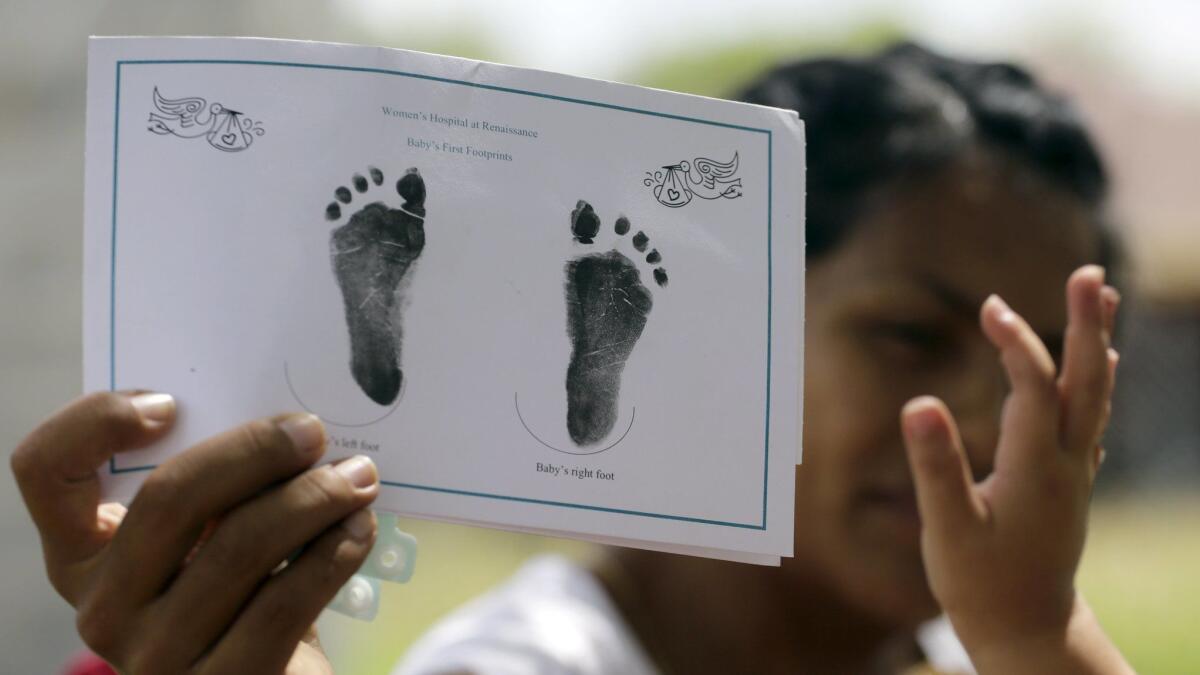Editorial: Trump’s shameful attack on birthright citizenship is probably a political ploy. But what if it’s not?

It’s unclear how serious President Trump is about issuing an executive order to abolish so-called “birthright citizenship.” Perhaps he will abandon the idea once it has served the purpose of riling up his anti-immigrant base in next week’s midterm elections.
But perhaps not — and that would be a terrible mistake. Frankly, it’s outrageous that Trump would even broach the possibility. His proposed order would violate an overwhelming legal consensus dating back many decades that the Constitution grants citizenship to persons born in the United States regardless of their parents’ immigration status.
Not only would such an order be unconstitutional, but it would be wrong as a matter of principle. Birthright citizenship is an important emblem of equality and inclusion, and an affirmation that being an American doesn’t depend on bloodlines. That’s a concept that suits a nation of immigrants.
As a candidate, Trump proposed doing away with birthright citizenship, which he wrongly called the “biggest magnet for illegal immigration.” He has not followed through, but in an interview with Axios to be aired on HBO this weekend, the president confirmed to a reporter that he plans to issue an order to that effect.
Enter the Fray: First takes on the news of the minute from L.A. Times Opinion »
“It was always told to me that you needed a constitutional amendment,” Trump said. “Guess what? You don’t.” He added: “You can definitely do it with an act of Congress. But now they’re saying I can do it just with an executive order.”
Guess what? “They” are wrong. The 14th Amendment, added to the Constitution after the Civil War, says: “All persons born or naturalized in the United States, and subject to the jurisdiction thereof, are citizens of the United States and of the state wherein they reside.” In the 1898 decision in United States vs. Wong Kim Ark, the Supreme Court ruled that a child born to Chinese-citizen parents legally residing in this country was a U.S. citizen.
The court wrote: “To hold that the 14th Amendment of the Constitution excludes from citizenship the children born in the United States of citizens or subjects of other countries, would be to deny citizenship to thousands of persons of English, Scotch, Irish, German or other European parentage, who have always been considered and treated as citizens of the United States.”
It’s widely accepted that the same is also true of children born in the U.S. to undocumented parents. Before he was appointed by Trump to the U.S. 5th Circuit Court of Appeals, the conservative constitutional scholar James C. Ho wrote that the sweeping language of the 1898 decision “reaches all aliens regardless of immigration status.”
So Trump is wrong on the law. And he’s wrong on the merits. It’s not surprising that a president who has relentlessly demonized immigrants and immigration doesn’t understand the issue. But he shouldn’t be able to act on that ignorance.
Follow the Opinion section on Twitter @latimesopinionand Facebook
More to Read
A cure for the common opinion
Get thought-provoking perspectives with our weekly newsletter.
You may occasionally receive promotional content from the Los Angeles Times.










